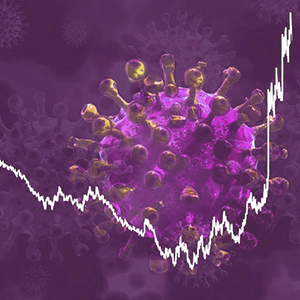Safety and feasibility of physiotherapy in ICU-admitted severe COVID-19 patients: an observational study

Accepted: January 14, 2022
Supplementary: 242
All claims expressed in this article are solely those of the authors and do not necessarily represent those of their affiliated organizations, or those of the publisher, the editors and the reviewers. Any product that may be evaluated in this article or claim that may be made by its manufacturer is not guaranteed or endorsed by the publisher.
Authors
Early physiotherapy could play an important role in the management of severe COVID-19 subjects with consequences of prolonged ICU stay, although its effectiveness is still unclear. Aim of this study is to describe physiotherapy performed in severe COVID-19 patients and to evaluate its safety and feasibility. Consecutive adults with confirmed SARS-CoV-2 infection, admitted to the ICU, needing invasive mechanical ventilation for >24 hours and receiving early physiotherapy, have been enrolled. Adverse events occurred during physiotherapy sessions and timing and type of physiotherapy delivered were analysed, to identify the interventions most frequently performed and to determine the time taken to first mobilize, stand and walk. Functional and clinical assessment of patients was also performed at hospital discharge. Eighty-four severe COVID-19 subjects were enrolled. Few minor adverse events were recorded. Active mobilization was promoted over passive mobilization and independence in daily life activities was supported. Time interval from patients’ intubation to the first physiotherapy treatment was 13 days and to walking was 27 days. Forty-eight (57.1%) subjects returned at home, whereas 29 (34.5%) were discharged to in-patient rehabilitation. Patients with tracheostomy experienced a delay in time from ICU admission until sit out of bed and ambulation, if compared with subjects without tracheostomy, although no differences were found in 6MWT and 1m-STST performances. This study reporting early physiotherapy during pandemic suggests that this intervention is feasible and safe for severe COVID-19 subjects, as well as healthcare workers, although delayed compared to other critically ill patients.
How to Cite

This work is licensed under a Creative Commons Attribution-NonCommercial 4.0 International License.
PAGEPress has chosen to apply the Creative Commons Attribution NonCommercial 4.0 International License (CC BY-NC 4.0) to all manuscripts to be published.
Similar Articles
- Surjit Singh, Daisy Khera, Ankita Chugh, Sameer Khasbage, Pushpinder S. Khera, Vinay Kumar Chugh, BCG vaccination impact on mortality and recovery rates in COVID-19: A meta-analysis , Monaldi Archives for Chest Disease: Vol. 91 No. 4 (2021)
You may also start an advanced similarity search for this article.

 https://doi.org/10.4081/monaldi.2022.2087
https://doi.org/10.4081/monaldi.2022.2087




